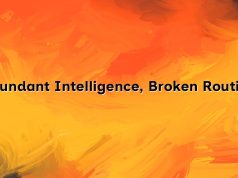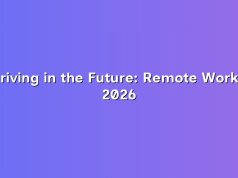Managers hire people for their teams based on their experience and how they present themselves throughout the interview process. They might strive to develop a well-rounded team of individuals that will undoubtedly help their unit and the entire business prosper. However, before helping out their team, managers themselves must understand their soft skills and know how to implement them. In this post, we share how you can enhance your soft skills as a manager so you can stand out.
Critical thinking
Automation isn’t trusted to make executive decisions on behalf of people since you must constantly examine circumstances, think about solutions, and make decisions via logical reasoning.
A.I. is boosting in some facets of crucial thinking, but human beings can give informative interpretations and think of concepts which are still absent in machines.
Curiosity
The workforce is transforming due to people’s creative thinking, i.e., robotics was a human concept. Imagination requires some intuitive unpredictability that machines cannot currently imitate. Sometimes we have a gut feeling about something right or wrong, which is inexplicable to us.
It will undoubtedly be helpful for us to look at the globe and find ideas and possibilities that you predict will become important. You’ll have to see opportunities that others might not see. It would help if you quit your rational mind that thinks on practicality and a possibility from hindering instead of seeing opportunities.
Emotional intelligence
Emotional intelligence significantly separates humans from machines. It has numerous benefits, such as helping you to: recognize just how your actions affect others, adapt to changing situations, respond variably to different situations, understand why someone feels a specific way, and so on.
Emotional intelligence makes it much easier for you to form connections and work with others. This is very important because the success of a business typically relies on employees working together.
Risk-taking
Companies stop growing when no risks are taken. So thinking outside the box and also coming up with original ideas is essential. In the future, there will also be less space from staying the safe middle because people are drawn to brands, concepts, and so on that are confident and decide to lead.
Flexibility
In “The Future of Jobs,” The World Economic Discussion forum talked with 350 execs, and the findings suggest that higher-level cognitive abilities will be needed for lots of work, such as logical reasoning and also creativity.
Communication
To be successful, you need to express your views as well as your ideas. It would help if you did this with interest, confidence, sincerity, and emotion – this is something machines cannot do.
Communication is increasingly taking place through videos, such as talks, so presentation skills end up being a must. With this, you need to be flexible in your communication so you can adjust to various audiences.
The future of work means differently to each one of us: some see it as more technology and less human, some expect a more humanized space and some others imagine it to be a no-workplace world. In our journey to unwrap FutureofWork, Work2.org invites leaders from various industries to help our global community to understand what the posterity holds for workers, leaders and organizations. While our team is busy at bringing this fresh ideas directly to you, we would appreciate our community help in making it possible. If you like what you’ve read, we would appreciate if you could spread the word within your circles and let us know if anything you want us to bring into this #FutureOfWork conversation.




























